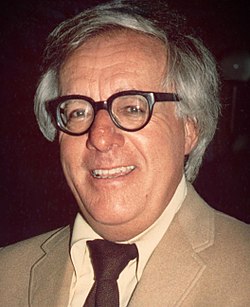Ray Bradbury Quote
Remember: Plot is no more than footprints left in the snow after your characters have run by on their way to incredible destinations. Plot is observed after the fact rather than before. It cannot precede action. It is the chart that remains when an actionis through. That is all Plot ever should be. It is human desire letrun, running, and reaching a goal. It cannot be mechanical. It canonly be dynamic. So, stand aside, forget targets, let the characters, your fingers, body, blood, and heart do.
Ray Bradbury
Remember: Plot is no more than footprints left in the snow after your characters have run by on their way to incredible destinations. Plot is observed after the fact rather than before. It cannot precede action. It is the chart that remains when an actionis through. That is all Plot ever should be. It is human desire letrun, running, and reaching a goal. It cannot be mechanical. It canonly be dynamic. So, stand aside, forget targets, let the characters, your fingers, body, blood, and heart do.
Related Quotes
I'm trying to undermine the basis of Christian belief... I'm not in the business of offending people. I find the books upholding certain values that I think are important, such as life is immensely va...
Philip Pullman
Tags:
basis, beauty, belief, book, books, children s books, offense, paraphrased, philip pullman, plot
About Ray Bradbury
Ray Douglas Bradbury (US: BRAD-berr-ee; August 22, 1920 – June 5, 2012) was an American author and screenwriter. One of the most celebrated 20th-century American writers, he worked in a variety of genres, including fantasy, science fiction, horror, mystery, and realistic fiction.
Bradbury is best known for his novel Fahrenheit 451 (1953) and his short-story collections The Martian Chronicles (1950), The Illustrated Man (1951), and The October Country (1955). Other notable works include the coming of age novel Dandelion Wine (1957), the dark fantasy Something Wicked This Way Comes (1962) and the fictionalized memoir Green Shadows, White Whale (1992). He also wrote and consulted on screenplays and television scripts, including Moby Dick and It Came from Outer Space. Many of his works were adapted into television and film productions as well as comic books. Bradbury also wrote poetry which has been published in several collections, such as They Have Not Seen the Stars (2001).
The New York Times called Bradbury "An author whose fanciful imagination, poetic prose, and mature understanding of human character have won him an international reputation" and "the writer most responsible for bringing modern science fiction into the literary mainstream".
Bradbury is best known for his novel Fahrenheit 451 (1953) and his short-story collections The Martian Chronicles (1950), The Illustrated Man (1951), and The October Country (1955). Other notable works include the coming of age novel Dandelion Wine (1957), the dark fantasy Something Wicked This Way Comes (1962) and the fictionalized memoir Green Shadows, White Whale (1992). He also wrote and consulted on screenplays and television scripts, including Moby Dick and It Came from Outer Space. Many of his works were adapted into television and film productions as well as comic books. Bradbury also wrote poetry which has been published in several collections, such as They Have Not Seen the Stars (2001).
The New York Times called Bradbury "An author whose fanciful imagination, poetic prose, and mature understanding of human character have won him an international reputation" and "the writer most responsible for bringing modern science fiction into the literary mainstream".
